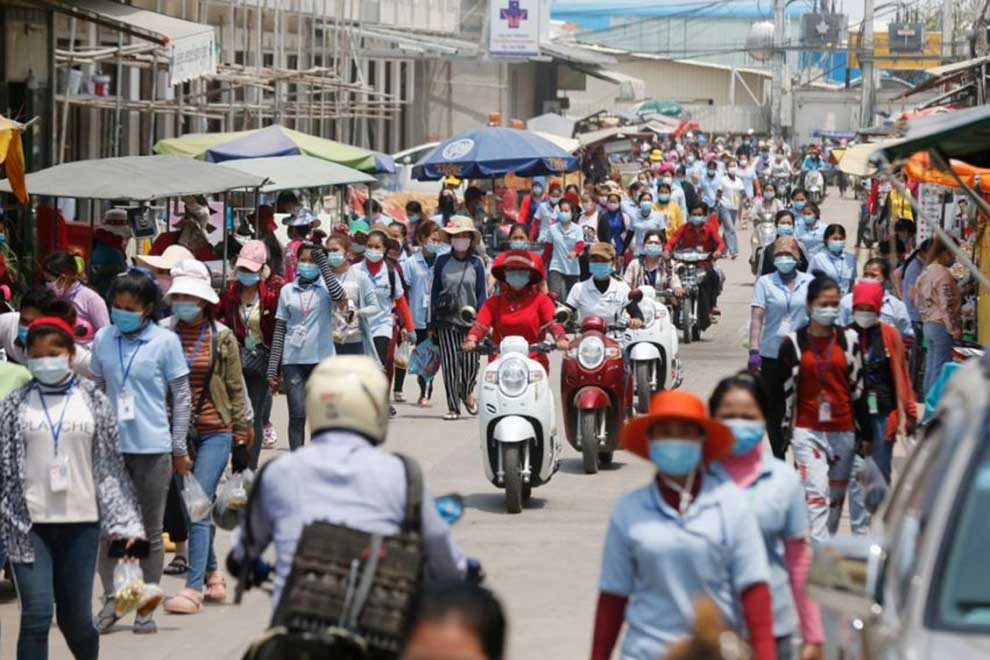
The Kingdom exported footwear and travel goods worth $1.114 billion and $1.179 billion, up 21 per cent and 52 per cent year-on-year. Heng Chivoan
Increasing orders for footwear and travel goods from international markets and the opening of new factories in the Kingdom have contributed to labour shortages in the sector, according to Cambodia Footwear Association (CFA) president Ly Kunthai.
Overseas orders for Cambodian footwear last year were up by around 30 per cent year-on-year, with a more pronounced upturn from mid-2021, Kunthai told The Post on January 9.
He said the dearth of factory workers was especially evident in the outskirts of urban areas.
“Ramped up production at existing factories, coupled with the opening of many new factories, has created a shortage of manpower – workers with specific skills above all,” Kunthai said.
With the global economic environment gradually transitioning to a “new normal”, a rising share of overseas buyers are diverting orders to Cambodia, enticed by a level of control over the Covid-19 pandemic that rivals the best in ASEAN, a nearly 90 per cent vaccination rate, and a remarkable degree of political stability, he said.
Cambodia Chamber of Commerce vice-president Lim Heng said the paucity of skilled labour is bedevilling not just garments, footwear and travel accessories, but also agriculture.
“A major cause of the current manpower drought is the Cambodian garment, footwear and travel goods sectors’ efforts to reduce production costs to compete with neighbouring countries.
“I believe that if we were to step up and pony up large sums for workers, there’d be no labour shortages. Many Cambodians cross the border into Thailand for work just because the wages for labour are higher,” he said.
Kunthai shared that the CFA had asked the Ministry of Labour and Vocational Training at a meeting on January 6 to find sources of labour supply for the footwear and travel goods sectors, and sign a memorandum of understanding (MoU) to that effect.
Minister of Labour and Vocational Training Ith Sam Heng signalled support for the MoU, and suggested the association also work with the ministry’s National Employment Agency to promote job opportunities and recruit workers for factories.
“The association can directly contact the technical and vocational education and training institutions under the ministry at any time to hand-pick the types of skilled workers needed,” he said.
Undeterred by the threat of the coronavirus Omicron variant, the CFA president expects more investment and exports in the garment, footwear and travel goods sectors, lifted all the higher by the new investment law and relatively successful control of Covid.
In January-October 2021, Cambodian footwear and travel goods exports clocked in at $1.114 billion and $1.179 billion, respectively, ticking up by 21 per cent and 52 per cent year-on-year, according to the Ministry of Commerce.











